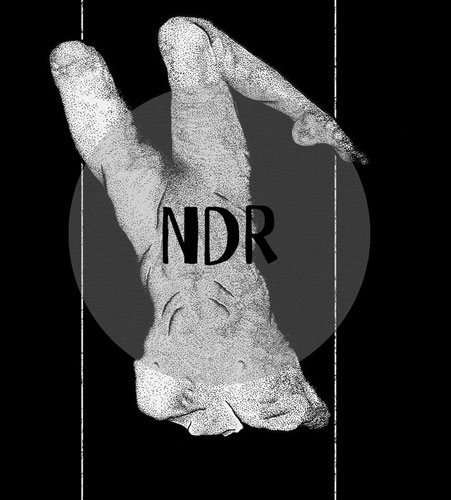New Delta Review – May 2018
For over thirty years, New Delta Review has been publishing quality poetry, prose, interviews, and art, produced by students of the MFA Program in Creative Writing at Louisiana State University. They host annual contests, produce chapbooks, and publish online issues twice a year. The latest issue offers a strong selection of writing, with particularly strong prose.
For over thirty years, New Delta Review has been publishing quality poetry, prose, interviews, and art, produced by students of the MFA Program in Creative Writing at Louisiana State University. They host annual contests, produce chapbooks, and publish online issues twice a year. The latest issue offers a strong selection of writing, with particularly strong prose.
Among this prose is “TV Girls” by Dana Diehl—an excerpt from her chapbook of the same name, which won the New Delta Review 2017-18 Chapbook Contest—a creative read about twenty-five “TV girls,” or contestants on a dating show. They’re not given names, only assigned letters, because they’re as interchangeable as the next, as is “Potential Husband.” As the piece progresses, girls being booted off one by one, Diehl worms in the ways in which we, as spectators, shamelessly feed on and into this form of media. When drama appears with one girl, the viewers think: “stay stay stay, because when a TV girl leaves, she’s gone. To leave is to fizzle, and what we want to see is the eruption, the split, the crying on the tiled floor.” As another is scrutinized: “Potential Husband says he doesn’t care what F did in her past, and we’re disappointed, because if he shamed her then we could, too.” Later the collective viewership admits they want to see the girls’ mascara run as they thrive on others’ failures. It starts to come full circle as we the readers think maybe we aren’t like the viewers—we’re better—just as the viewers see themselves as a step up from the TV girls. Readers can find an interview with Diehl in this issue for more information about the full collection.
In nonfiction, Elizabeth Miki Brina’s “One Percent” explores race and the relationship with her parents. As a child, she views her Japanese mother with disdain, as a mark of what is different about her. Everything is measured by wealth and skin color in her childhood mind and her mother is a walking symbol of where she fits on her own scale. I read this piece with a lump in my throat as Brina writes her unflattering truths with unflinching honesty. She’s cruel to her mother growing up and she admits this. While the piece focuses on their relationship when she was young, I’m curious to see how it developed (or didn’t) throughout the years. Luckily, according to her bio, Brina is working on a memoir that “focuses on her mother, the history of Okinawa, the legacy of trauma, and the complications of growing up biracial,” something I hope to be able to read in the future.
Work by seven poets is included in this issue. Included in these selections are four excerpts from chapter 21 of it all melts down to this: a novel in timelines by Ben Miller and Dale Williams. These visual poems are easiest to read on a phone, some text tilted on its side or flipped upside down. The text in two of the poems crawls downward, marker lines drawn through the words as guide marks. Another, labeled “The Scrapture” looks almost like a table of contents.
Other favorites in this issue include “Sister” by Cat Ingrid Leeches, a poetic and visceral back-and-forth story told by two sisters, which carries a similar tone as “Outburst” by Sidney Prescott, raw with a horror-movie quality feel to it with phrases like: “I’ll draw blood—from end to end, prick open your / scrotum, extract viscera, stuff you with Jiffy Pop” and “woozy gut, throbs / like a video cassette, that lurching, that spasm, / a glinted ribbon culled out of its casing.”
“Sweet Girls, Soft Rot” by Joy Clark is another favorite, the nonfiction piece focusing on complicated relationships with friends and food. While it was a favorite for me because of its relatable subject matter, Clark’s skillful retelling of difficult situations opens her story up to be appreciated by all readers.
A favorite not to be missed is “Notes for my Body Double” by Krys Malcolm Belc, chosen as the runner-up of the Ryan R. Gibbs Flash Fiction Contest. The main character, a trans man, considers what it would be like to have a body double to switch into during certain moments, someone to do their “stunts.” Belc’s narrator addresses their body double with tender patience and honesty, a voice I enjoyed reading.
In addition to the current issue, visitors to the New Delta Review website can also find interviews with current staff and past contributors on the blog, flex their photography skills by entering the 2018-19 Ryan R. Gibbs Award for Photography, or grab copy of Dana Diehl’s TV Girls in the store. Set aside some time to see everything NDR has to offer.
[ndrmag.org]






